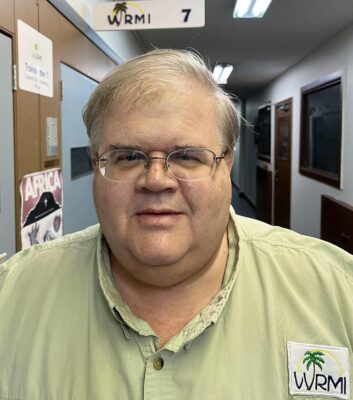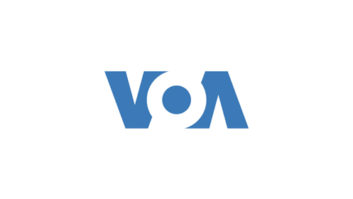
For many in the world of radio, the move by the Trump administration this weekend to shut down U.S. international broadcasting was shocking. Jeff White used the term “rather brash.”
White is general manager of WRMI Radio Miami International as well as secretary-treasurer of the National Association of Shortwave Broadcasters (NASB) and a 40 years-plus veteran of shortwave radio.
He has a lot of experience in this area, so Radio World reached out to him on Monday for his thoughts about the effective silencing of the Voice of America, Radio Free Europe/Radio Liberty (RFE/RL), Radio Martí, Radio Free Asia and other broadcasting entities operated by the U.S. Agency for Global Media. That all is based on an executive order to reduce “elements of the federal bureaucracy that the president has determined are unnecessary.”
Radio World: When you heard the news of VOA and its sister services shutting down transmissions worldwide, what was your reaction to it?
Jeff White: Holy cow!
In a way some of this had been expected, but when it happened all of a sudden like that on Saturday morning it was pretty shocking.
I started getting emails early Saturday morning from people at the VOA who said, “Hey, everybody’s been laid off and everything’s shut down.” And they said that they had talked to some of the people at the overseas relay stations, and the managers had gotten word about the shutdown, but the employees had not.
Now those employees are hired by the local embassies, and so they kept these relay stations operating, and if they didn’t get programming coming from Washington, they filled with music.
Radio World: So what’s the status of VOA, Radio Martí, RFE/RL and other USAGM players in international radio broadcasting?
Jeff White: A lot of these are probably off the air now. Some of them are still on, but they’re either airing music or sometimes old programs.
I noticed that Radio Martí’s shortwave frequencies are all off the air now. However, as of [Sunday] night anyway, the Marathon (Florida) AM station on 1180 kilohertz was still on. They didn’t have any news, but they seemed to be broadcasting old programs.
So yes, it was a shock to everybody how immediate it all was.
Radio World: You said that the USAGM shutdown was somewhat expected. How so?
Jeff White: They had been talking about there had been threats to either shut down or pare back USAGM and its services considerably. Trump hasn’t liked VOA for a long time, and so in a way it was expected that something was going to happen. It wasn’t good, but a complete shutdown like this on a moment’s notice was probably not expected.
Radio World: Let’s talk about the impact of what has gone off the air.
Jeff White: We have a monitor in India who is checking a lot of the relay transmissions from Thailand, Kuwait and other USAGM relay stations over in that part of the world. And he was saying that on such-and-such frequency, Radio Free Asia in Korean, for example, was still on, but Radio Deewa, which is one of the USAGM stations, was just playing music.
As of yesterday, most of them seem to be still on and either airing old programs or music. But I believe that the Greenville, North Carolina VOA station — the only VOA shortwave station in the U.S. — seems to be shut down. There doesn’t seem to be any transmissions coming from that. Of course, most of those transmissions were Radio Martí and, as I said, Martí shortwave was off, but AM was still on as of yesterday.
Radio World: What does this mean for the other big players in international radio, notably China?
Jeff White: China could fill holes. Certainly sometimes when a frequency opens up, they’ll take it, and so they might take advantage of the situation to transmit more and more of China Radio International; CGTN International, I think it’s called now.
Russia has been off of shortwave for many years. But they keep registering frequencies at the high-frequency coordination conferences, so who knows? Maybe they could come back.
I just saw something that Radio Free Europe/Radio Liberty might seek funding from the European Union now, which is interesting. Of course, they’re technically an independent institution so they can get money from others besides the USAGM.
There was one of our clients, a Cuban exile organization in Miami, that is off the air. When the USAID cuts came about, that also affected the National Endowment for Democracy that funds them, and so they’ve been off the air for a few weeks.
It’s not a good time for shortwave from the United States. But fortunately, privately owned stations like ours are not affected.
Radio World: What do you think will happen to the shortwave transmitter sites operated by VOA and other USAGM services around the globe?
Jeff White: Who knows? They could be sold, perhaps privatized. That’s what’s happened to a lot of the government shortwave stations that have closed down over the past decade or so. So maybe they’ll sell them. Maybe they’ll privatize ’em. Or maybe still there’s a possibility that VOA and all of the USAGM outlets or some of them will come back, but perhaps in a much-reduced fashion and with more control from the U.S. administration — less independence — certainly than they have been up to now.
Radio World: In January, the USAGM stated that its “networks reached a record 427 million weekly measured global audience” in the past fiscal year and that its audience had nearly doubled in the last decade, based on national surveys measuring the reach of VOA, RFE/RL, Radio and Television Marti, Radio Free Asia and the Middle East Broadcasting Networks. Are these numbers realistic? And what happens to those listeners under repressive regimes?
Jeff White: I think it’s really hard to know. For example, they [USAGM] can’t do surveys in Cuba to know how many people are listening. It’s certainly not the majority of the population, but a large number of people in Cuba still do listen.
I got an email from a listener in Cuba on March 15 when the shutdown happened, who asked us not to identify him. He asked if we had email addresses for Marco Rubio and other people in the government that he could contact, because he wanted to let them know the impact that Radio Martí and Voice of America have in Cuba and all over Latin America. He said that now they feel like they’re kind of alone with Radio Martí being off the air.
Radio World: What’s your own assessment of all this?
Jeff White: There’s been criticism for a long time that some of these services are overlapping, where you’ll have the same language being broadcast from Radio Free Asia and Voice of America, for example, or from Radio Free Europe and Voice of America, or Radio Martí and Voice of America. Certainly there’s bureaucracy at USAGM that can be eliminated, but shutting the whole thing down is rather brash.
Radio World: If you were a betting man, would you wager that we’ve heard the last of these services or that they might recover somehow?
Jeff White: Wow. I’m betting they’ll come back in some fashion, but it’s possible that they won’t. You never know with this administration, but I hope they’ll come back in some fashion.







